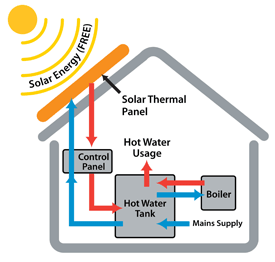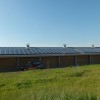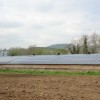About Solar Thermal
Solar thermal energy is the use of solar energy to produce heat.
This is an effect you're familiar with if you've ever gotten into your car after it has been parked in the sun on a hot summer day. Solar thermal energy works in the same way except that the heat generated is put to practical use to heat water or space heating.
In addition, by using a solar thermal system, you make an effective contribution in preserving our energy reserves and environmental protection by reducing CO2 emissions.
How does it work?

Solar Thermal systems provide a clean way of heating water for washing and bathing - from hot water for the humble kitchen sink to even heating a swimming pool.
The solar panels, called Collectors, absorb heat from the Sun either as Direct Radiation on a sunny day or Diffused Radiation when the Sun is obscured by cloud
There are two types of Solar Thermal Collectors (panels): Vacuum Tube Collectors and Flat Plate Collectors
Vacuum Tube Collectors are believed by many to be the more efficient of the two options, but there have been some concerns that they may not be as robust as the Flat Plate Collector alternatives. Consideration ought to be given to the nature of the intended installation site, for example a Cricket Pavilion might give cause for careful 'big hitter' consideration.
Collectors (panels) are typically roof mounted - they can be integrated into the fabric of the roof or mounted on special rails.
The basic principle is that heat energy is absorbed by the Collectors from the sun and a heat transfer fluid (glycol) is circulated through a heat exchanger in the hot water tank.
Thermal Solar systems produce no pollutants and are noiseless in operation. Savings on energy bills vary according to hot water demand, but a typical family of four could save over half their water heating costs.
The benefits of Solar Thermal:
- Hot water throughout the year. The system works all year round, though you'll need to heat the water further with a boiler or immersion heater during the winter months.
- Reduced energy bills. Sunlight is free, so once you've paid for the initial installation your hot water costs will be reduced.
- Lower carbon footprint. Solar hot water is a green, renewable heating system and can reduce your carbon dioxide emissions.
-
Nearly half of the energy consumed in the UK is for heating.
















